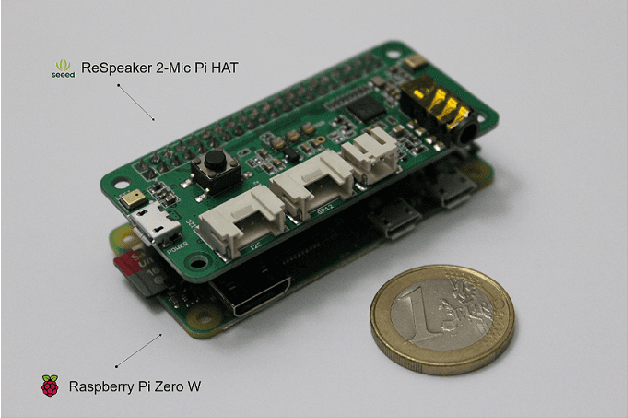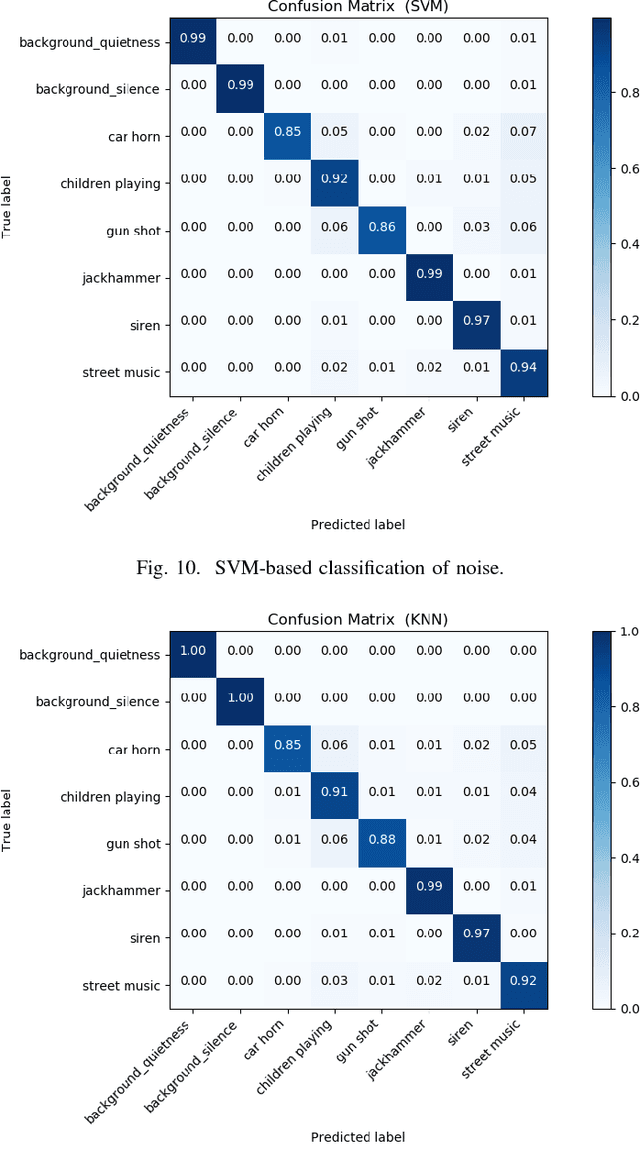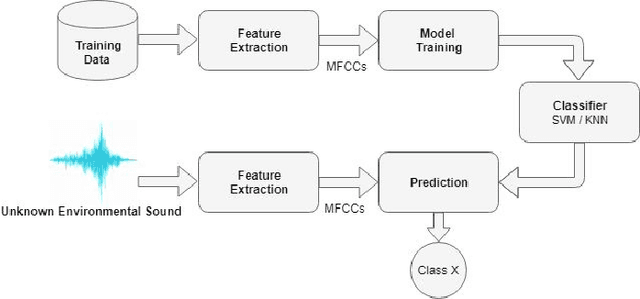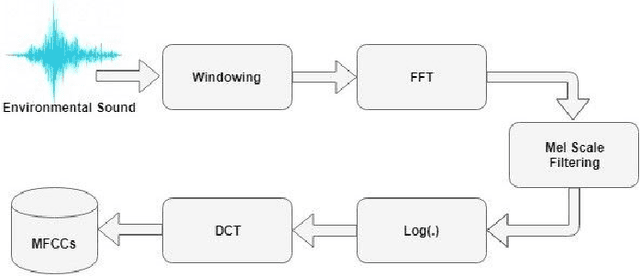Arianit Kurti
A Machine Learning Driven IoT Solution for Noise Classification in Smart Cities
Sep 01, 2018



Abstract:We present a machine learning based method for noise classification using a low-power and inexpensive IoT unit. We use Mel-frequency cepstral coefficients for audio feature extraction and supervised classification algorithms (that is, support vector machine and k-nearest neighbors) for noise classification. We evaluate our approach experimentally with a dataset of about 3000 sound samples grouped in eight sound classes (such as, car horn, jackhammer, or street music). We explore the parameter space of support vector machine and k-nearest neighbors algorithms to estimate the optimal parameter values for classification of sound samples in the dataset under study. We achieve a noise classification accuracy in the range 85% -- 100%. Training and testing of our k-nearest neighbors (k = 1) implementation on Raspberry Pi Zero W is less than a second for a dataset with features of more than 3000 sound samples.
 Add to Chrome
Add to Chrome Add to Firefox
Add to Firefox Add to Edge
Add to Edge